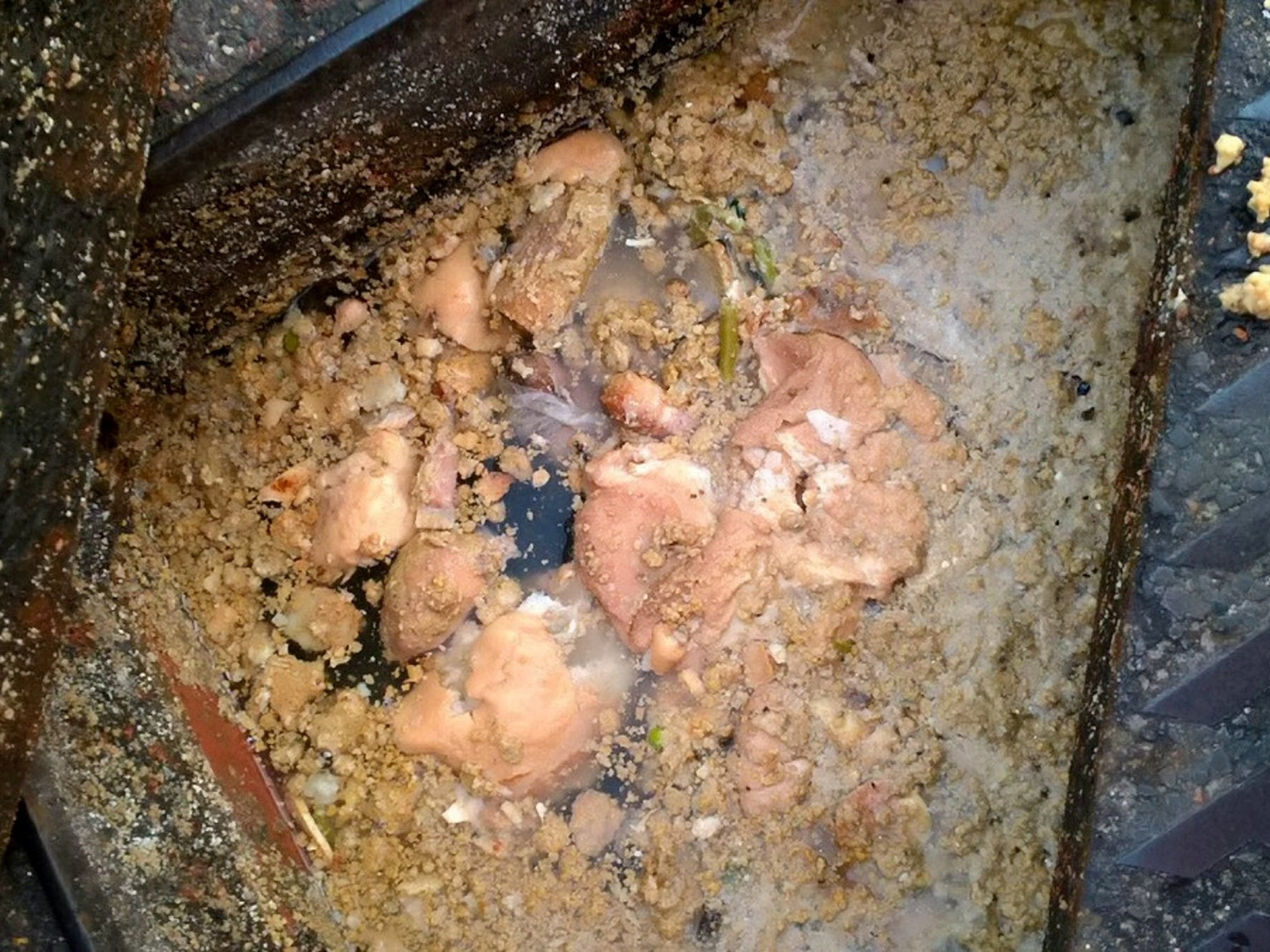Stop flushing Yorkshire puddings down the toilet, water company pleads
Drains in Ipswich inexplicably clogged with soggy matter

In an age of gargantuan fatbergs and proliferating use of wet wipes, the last thing Britain’s groaning sewers need is someone flushing mountains of Yorkshire puddings down the lavatory.
Unfortunately Anglian Water were forced to issue a plea for people to compost their food waste properly after a blockage constructed of disintegrating Yorkshire puddings was found preventing sewage from draining in Ipswich.
The company had to send workers out to find out what was causing the problem. They lifted a drain lid to reveal sewage backed up behind the puddings.
Afterwards they tweeted: “We're sure even our friends at @YorkshireWater wouldn't welcome this sight!”
“Somebody dumped a load of Yorkshire puddings in an Ipswich sewer. Please don't treat sewers as bins, avoid blocked pipes and compost your food waste!”
“Yorkshire Puddings are for Sunday dinners, not sewer binners!” The firm said, adding the raised fist emoji.
“Don't forget the only things that should be flushed are poo, pee and toilet paper!”
Every year there are 30,000 sewer blockages in the Anglian Water region - roughly one every 15 minutes - and more than half are avoidable as they are caused by FOG (fat oil and grease) and “unflushables”, such as wet wipes and sanitary products.
The company’s website advises: “Even products marked ‘flushable’ do not break down in the sewer like toilet paper. Flushing them could block your toilets and drains. All used wipes and sanitary products should be put in the bin.”
The website does not specifically mention Yorkshire puddings as an area of growing concern, but it says “dealing with the avoidable blockages and sewer flooding they cause costs £19m a year,” and disposing of the subsequent waste costs a further £1m.
Join our commenting forum
Join thought-provoking conversations, follow other Independent readers and see their replies
Comments